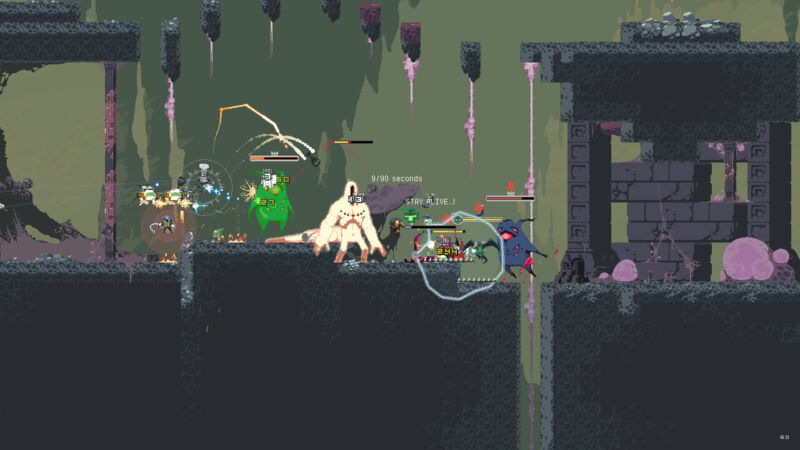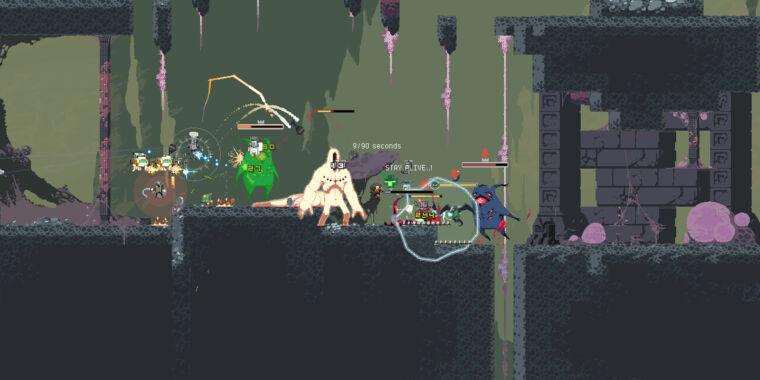
Gearbox Publishing
Up until this year, game engines were not something most gamers had to give much thought to beyond the one or two seconds their logos might appear while a game was loading.
That changed this fall when popular pick Unity went from a remarkable anybody-can-make-a-game tool to a developer-enraging, threat-generating, CEO-resignation mess. CD Projekt Red, maker of The Witcher and Cyberpunk 2077, made a point of stating that its next games would be built with the Unreal Engine, not its in-house REDengine. After Cities: Skylines 2 launched with notably rough performance, deep decompilation analysis found a bunch of seemingly Unity-related, or at least Unity-adjacent, issues.
That’s why this news about another big change in a popular game engine is so striking: it’s generally good. GameMaker (formerly Game Maker Studio), a 2D engine that was acquired by browser firm Opera in 2021, has simplified its licensing structure, declaring it “Free for Non-Commercial Use.”
If you’re making a game with GameMaker for release on consoles, you have to pay for an ongoing $80-per-month Enterprise package. If you’re trying to sell a game on other platforms (PC, mobile, browser), there’s a one-time $100 fee. If you’re just messing about or making something that’s not for sale, it’s free. And GameMaker’s asset bundles are free now, too. And some existing subscribers might now get a free commercial license. There is, notably, no mention of “run-time” or per-install fees.
Spelunky, one of the best platformers of all time, was made with GameMaker.
Mossmouth
YoYo Games, creator of GameMaker, describes the moves as a way to “Say ‘Thank you,'” as well as a response to “other platforms making awkward moves with their pricing and terms.” Game Developer notes that this is the second pricing switch since Opera acquired the studio, after an initial move to make tinkering with the engine free, up until you publish.
Russell Kay, head of GameMaker and a former developer on Lemmings, Grand Theft Auto (the 2D versions), and other games, writes that since Opera’s acquisition and subsequent freemium-like moves, the engine has seen “a three-fold increase in its active users,” with more than 6,000 games published on its gx.games platform.
GameMaker’s tech underlies several clever low-key hits: Gunpoint, Undertale, Hotline Miami, Spelunky, Crashlands, Hyper Light Drifter, Risk of Rain, and Chicory: A Colorful Tale.









